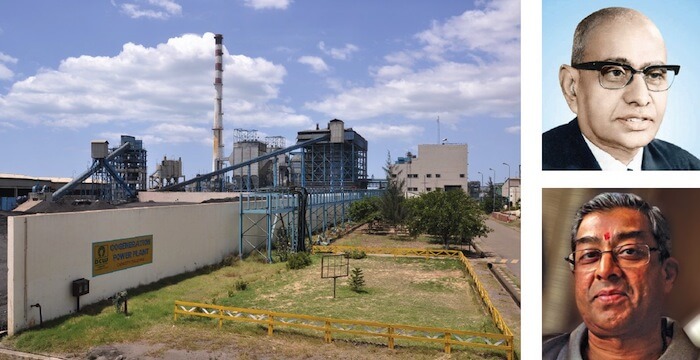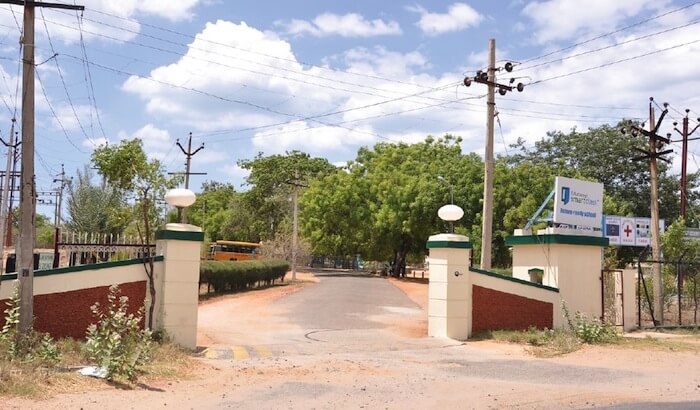Conversation with Bakul Jain
DCW was established in 1925 as one of the first Soda Ash factories in India. Behind the lucky horseshoe, that serves as the DCW Limited‘s logo, stands a hard working family: In the 1930ies Sahu Shriyans Prasad Jain took over the management of the factory and grew it together with his family into the industry leader it is today. Bakul Jain is the eldest member of the 3rd generation of this family business. He joined the family in 1975, when he was given the responsibility of looking after a cutlery manufacturing company belonging to the family group – Kishco Cutlery Private Limited. After almost four years of gaining experience, he undertook a one-year MBA. After graduating, he returned to India and resumed his work with the family. In 1982, he joined DCW Limited as Vice President in its Caustic Soda Division. Working with his two uncles and three cousins, Bakul Jain today is the Managing Director of DCW Limited, and is on the Board of a number of other public and private companies. He is the Trustee of the family’s various charitable trusts, serves on the Board of the International Association for Human Values India, as well as a member of the Board of Management of the Bombay Hospital Trust and S.P. Jain Institute for Management and Research. Tharawat magazine speaks to Bakul Jain about his family, his business, and his recommendations to other family businesses.

DCW Ltd has been run successfully by your family since the 1940s. What are the Jain family characteristics that have contributed to this continuous success?
The family has always understood that to be successful, one must display a combination of vision, dedication and drive. Vision is critical to identifying business opportunities, but this isn’t enough. Without the dedication and focus to follow through on the execution, DCW would not be where it is today.
Another hallmark of our family has been our commitment to a larger perspective, such as social service and community development. We have always recognised that no business can exist in isolation, and have hence always been committed to improving the world around us. All of these qualities have been handed down in our family starting with my grandfather, the late respected Sahu Shriyans Prasad Jain, and have been critical to our continued success.
India is a country that has undergone dramatic transformations throughout the last decades. What were the moments where the Jain family made key strategic changes in DCW Ltd. to adapt to the macroeconomic context?
The family has always been keenly aware of its environment and the context in which it operates, which has enabled it to take advantage of changes in the macroeconomic context. The significant changes that India has experienced have been great opportunities for the family to build and grow DCW Ltd.
As independence beckoned, my family understood the need for industrialising a nascent nation, and decided to enter the chemicals industry by acquiring a soda ash plant in the Western state of Gujarat.
As India’s impetus for domestic industrialisation grew in the 1960s and 1970s, the family was quick to seize the opportunity to expand across India by setting up a chemical complex in the Southern state of India, Tamil Nadu. Later, foreseeing the growing importance of the petro-chemicals industry, we entered this nascent sector in 1970 with one of the first integrated PVC resin plants. The family also constructed a beneficiated ilmenite manufacturing plant, a global first.
How does the Jain family prepare the next generation for joining the family business?
The family has always instilled a sense of duty into its younger generation, and has taught them that being a part of the business is a privilege, not a right, and comes with the responsibility to grow it for the next generation of the family, and also for all the other stakeholders such as the shareholders, customers, employees and the community at large. Making sure the children grow up with and imbibe this attitude is critical for the family’s continued personal and professional success.
Additionally, in today’s day and age, education is key, both formal and informal. The next generation should strive to be educated at the best schools and experience working with the best companies and people before being allowed to have managerial responsibilities at DCW.
Do you feel that being a family business has brought specific advantages and/or disadvantages in running an industrial group such as DCW Ltd.?
We believe that our family structure and operating style has been an advantage to DCW. Having a visionary founder instill the right skills and beliefs into the next generation has helped the family be nimble and focus on creating long term value, in a way that is not possible at less tightly controlled groups. Having said that, we have a significant number of professional managers to make sure that DCW executes the family’s vision. Moreover, as the third generation of the family has received the best education and have been exposed to considerable work experience, they can be considered as “professionals” in their own right.

How do you value the importance of Indian family businesses in relation to the economy and what challenges do they face today?
Family businesses account for the lion’s share of India’s corporate activity, and hence continue to remain critical to the economy. Furthermore, family-run companies can take a long-term view on value, and can hence look to build businesses that will benefit the economy in the long run, something that is not always possible at companies only focused on their next quarter’s results.
The key challenges family businesses face today is lack of focus amongst the younger generations, and a lack of critical mass to build truly world-class companies. These can be addressed by ensuring that the younger generation has the right education and work experience, or by shifting to professional management. The best run businesses can then look to consolidate in their respective industries and build world-leading companies.
What is your advice to the next generation of Indian family businesses?
The next generation should strive to build on the achievements of their predecessors, and not just rest on their laurels. This requires hard work, dedication and a certain entrepreneurial zeal. If they are not able to or interested in doing this, they should know enough to leave the management of their inherited businesses to professional managers, and only remain involved as shareholders. They should have the wisdom and clarity to separate ownership from management if need be.
Tharawat Magazine, Issue 15, 2012
















